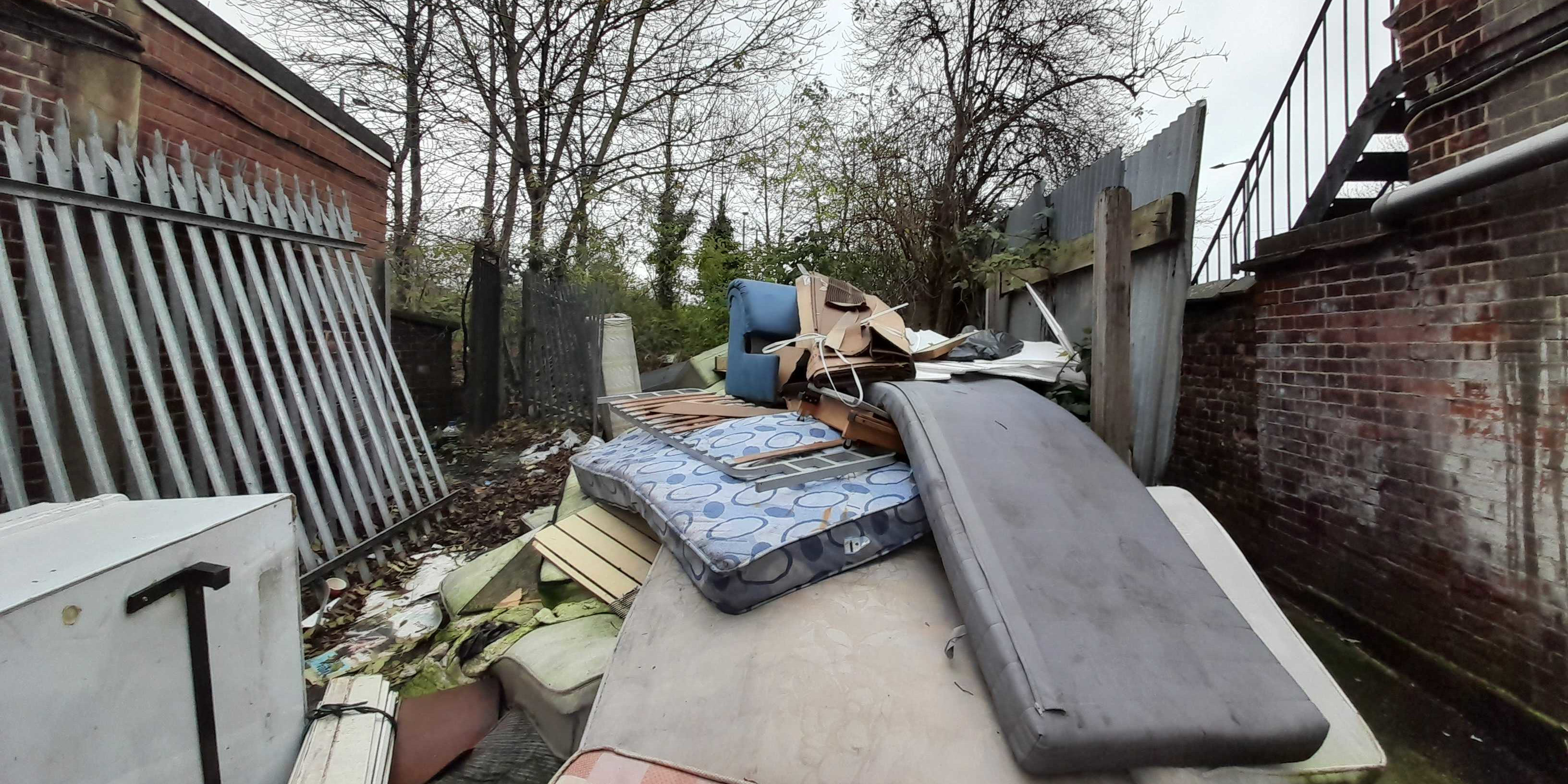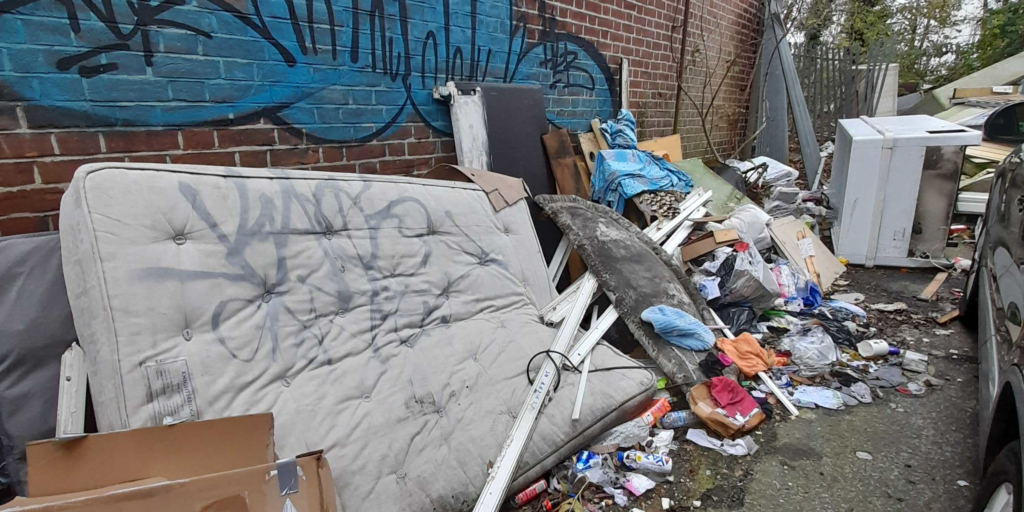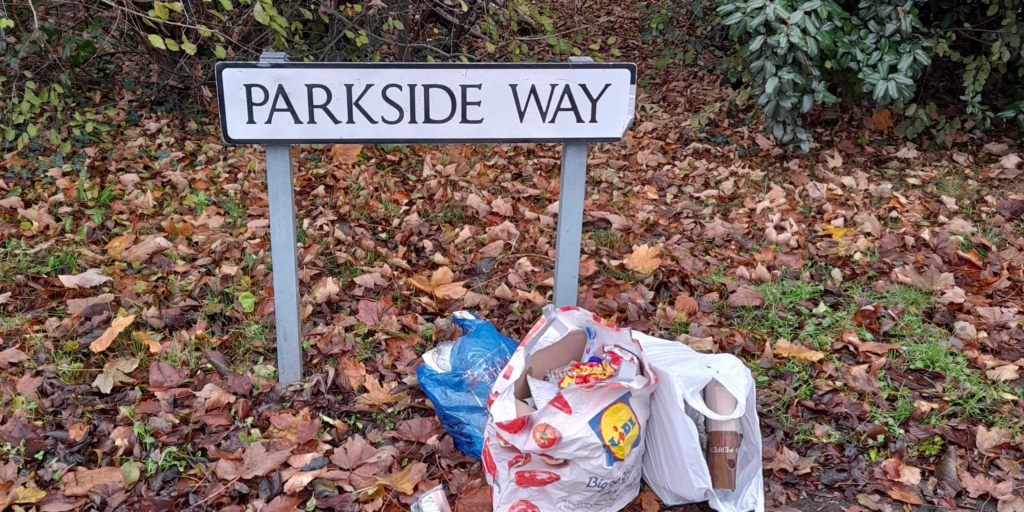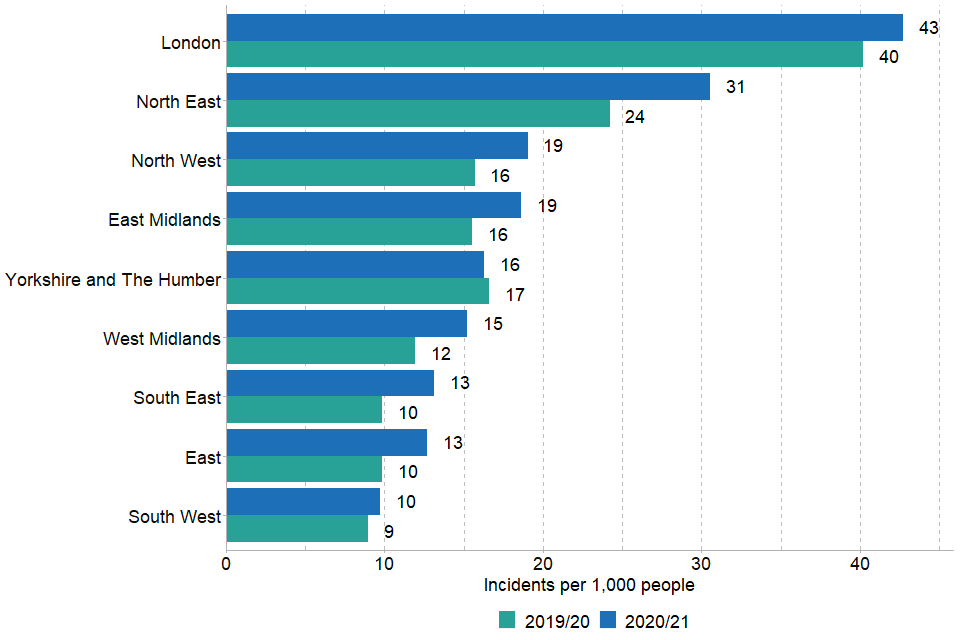

A fly-tipping hotspot on Harrow High Street, where personal items like microwaves and mattresses are dumped illegally, remains messy despite the locals appealing to the council to clear it up for six months.
The street is home to many small businesses and residents, who have regularly complained about the foul stench emanating from the tipping-spot. The presence of rodents, and disease-spreading flies attracted to food waste left on the ground, also pose health and safety hazards.
“This eyesore has been here for months, and we have tried to raise it with the council every now and then. They come and clean it a little, but it is back to the same the next day. That’s not enough. They need to remove everything”, claims an anonymous owner of the shop that is next to the dump.
Many frustrated residents believe fly-tipping has become a more regular menace in the area, and want the council to be more accountable. Martin Douglas, who has lived in Harrow for over twenty-seven years, claims their streets have become filthier than ever.
“Harrow was always very nice, but there has been so much rubbish thrown everywhere lately, it is outrageous. The council has also become a bit fed up now”, Douglas said.

Some also believe that people living in the local area have more of a role to play, and that better monitoring is needed so that fly-tippers can be caught and penalized. The council, they claim, periodically conducts awareness meetings encouraging people to throw their waste at the designated dump yard nearby, but this hasn’t deterred the fly-tippers.
“We have cameras at the far ends, and people have taken pictures and videos before, but the council has to put in strict measures to book these criminals”, Douglas continued.
A lack of bins on the street, particularly for commercial waste, is seen as another reason behind the growing mess.
“There are just two or three large bins for all the businesses on this street. The council should make sure every owner has a bin allocated, otherwise this problem will keep persisting”, the above shop owner said.
Fly-tipping is a criminal offence in the UK and in extreme cases, culprits can face a penalty of up to 50,000 pounds or a prison sentence for up to five years. Yet even with these severe punishments, fly-tipping continues to rise. During the pandemic it went up by 16% across the UK, with 1.13 million cases of rubbish dumped in public spaces over 2020-21, a government report found. London, which saw 43 such cases for every 1,000 people, held the top spot.
Fly-tipping incidents per 1,000 people in England by region, 2020/21
In the past, boroughs like Camden, Brent, and Croydon have accounted for the majority of these fly-tipping cases in London, but Harrow is rapidly becoming a new hub. In 2020-21 alone, fly-tipping surged by 3,500 cases in Harrow.
When contacted by Raven News, Harrow Council was unavailable for comment, but the council has recently announced measures to reduce fly-tipping in the area. Fines have been doubled, from 200 to 400 pounds, for those caught fly-tipping, and anyone can now report an incident on the council website. But residents do not consider these measures to be very effective thus far.
“The people have to understand this is their home, this is where they work, and should act more responsibly, but it is also up to the council to make people follow the rules and they need to get tougher and more proactive”, the shop owner added.
Lack of strict protocols, adequate council resources and public apathy however means this civic disaster is likely to continue for weeks, unless a concrete step is taken for its removal much to the annoyance of the residents, who have now resigned to its presence.
